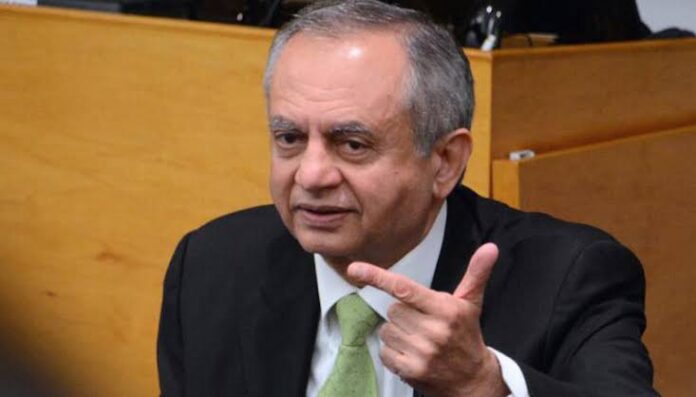— Dawood says new trade wings in six African states will enhance Pakistan’s footprint in region
— Says MoC’s ‘Look Africa Policy Initiative’ is already put into motion
ISLAMABAD: Adviser to Prime Minister on Commerce Abdul Razak Dawood said on Thursday that Pakistan wanted to double its trade volume with African countries in the next five years through enhancement in bilateral trade and economic cooperation.
“The trade volume between Pakistan and Africa has been far below the real potential and this needs to be increased,” the adviser asserted while addressing the Pak-Africa Trade Development Conference in Nairobi, Kenya.
According to a statement issued by the Ministry of Commerce (MoC), Dawood said the conference was an important initiative to bring together businessmen from Africa under one roof to explore and open-up new trade frontiers.
The minister said this conference would synergize Pakistan’s efforts to capitalise economic opportunities and was a testimony of the government’s strong commitment to enhancing trade and economic cooperation with Africa.
He noted that in 2018, Africa’s annual global trade was $1.075 trillion, but Pak-Africa trade had remained stagnant at a meagre $3 billion for many years.
“Mutual trade only crossed $4 billion in the last two years, touching $4.28 billion in 2018-19 which still is a fraction of the total trade,” the adviser added.
He said with a collective Gross Domestic Product (GDP) of $2.45 trillion (2018) and with a projection of 4.1pc in 2020, it’s time for the world to acknowledge Pakistan’s robust economic performance.
“Until now, Africa has been a distant frontier for Pakistan economically. It’s time to unlock the true potential of our trade relations through enhanced connectivity.”
The minister underlined the need to enhance regional cooperation through trade for the socio-economic uplift and development.
He was of the view that logistics and transport affected trading activities because of shipping times, costs of handling, and delivery of goods. He recommended reduction of tariff and non-tariff trade barriers as those acted as a catalyst for accelerated growth in bilateral trade.
Dawood said given the concrete opportunities that existed between the two sides, Pak-Africa trade could easily be increased manifolds in years to come. “Kenya, being the longstanding friend and an important trading partner, offers the best platform for the same.”
The minister asked the forum to accept the challenge and work together for mutual benefits.
“The MoC has formulated ‘Look Africa Policy Initiative’ which has already been put into motion. We need to exchange more manufactured and processed goods, more knowledge transfer, and more value.”
Both sides needed to accelerate export diversification and product sophistication, the minister said, adding that this would enable us to shift from an over-dependence on commodities to higher-value added products and services.
“It will also build resilience to movements in demand and help fetch better prices. This is the fastest path to economic growth, job creation and poverty reduction.”
Dawood said the government was appointing more trade envoys to increase Pakistan’s footprint in Africa, adding “we are opening six new trade wings at our embassies in African region.”
He said new wings are being opened in Algeria, Egypt, Ethiopia, Senegal, Sudan and Tanzania.
“We are already in touch with SACU, ECOWAS and EAC to negotiate trade agreements and also plan to take advantage of the opportunities that exist under the African Continental Free Trade Agreement (FTA).”
Dawood said Pakistan could supply rice, engineering goods, electrical appliances, textiles, apparel, pharmaceuticals, sports goods, surgical instruments, cutlery, furniture and many more products. Similarly, Pakistan can be a good market for supply by the African exporters, added.




